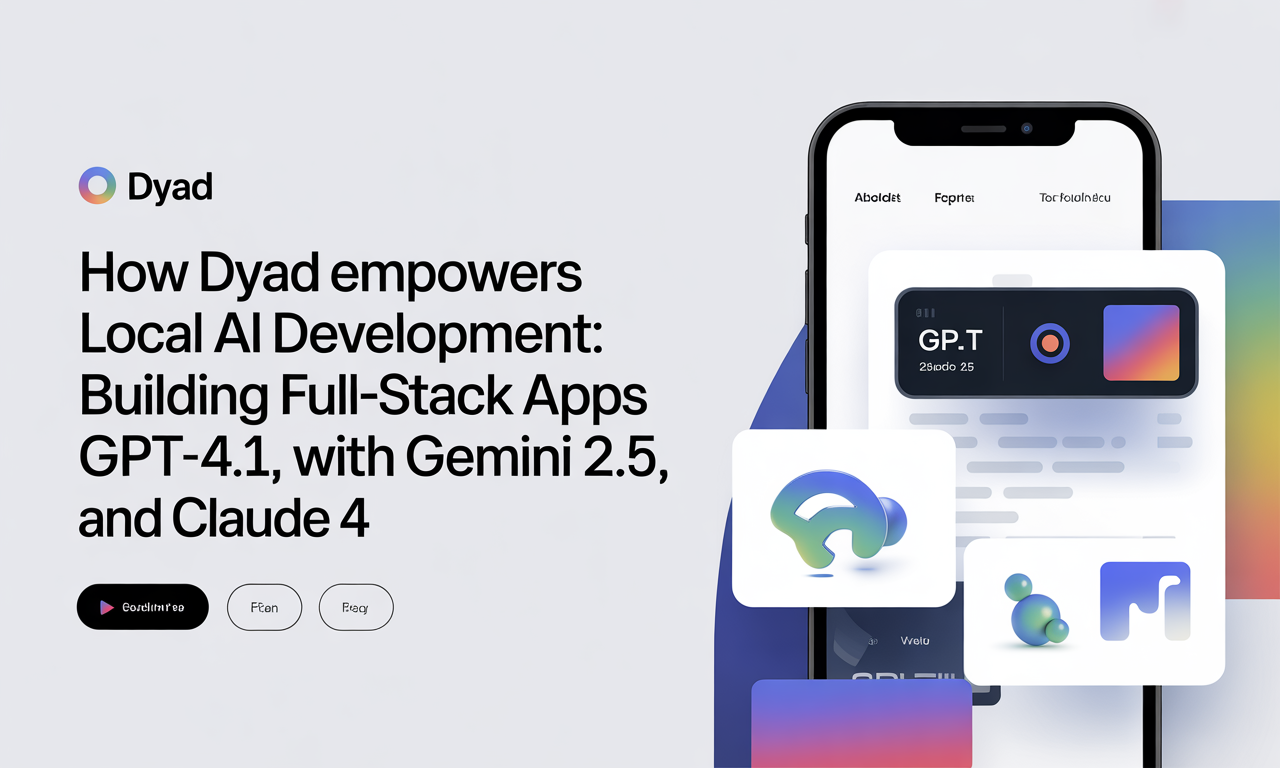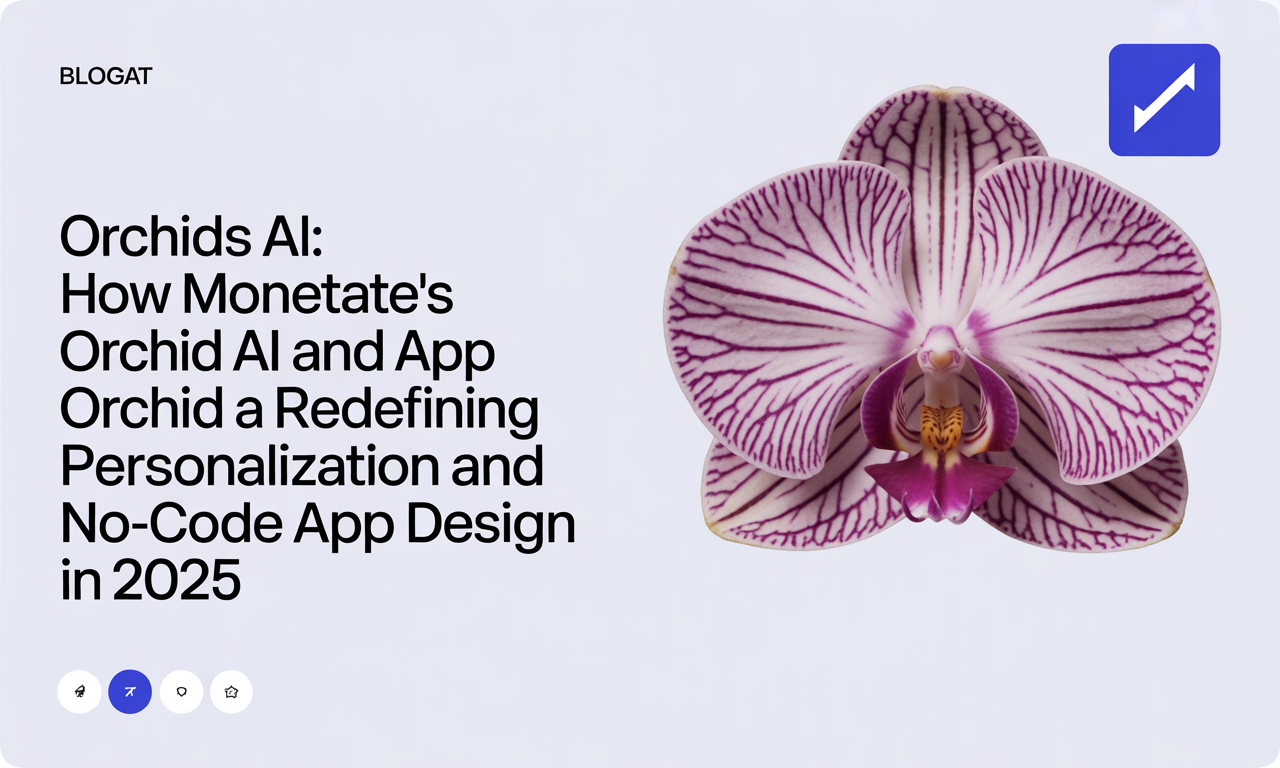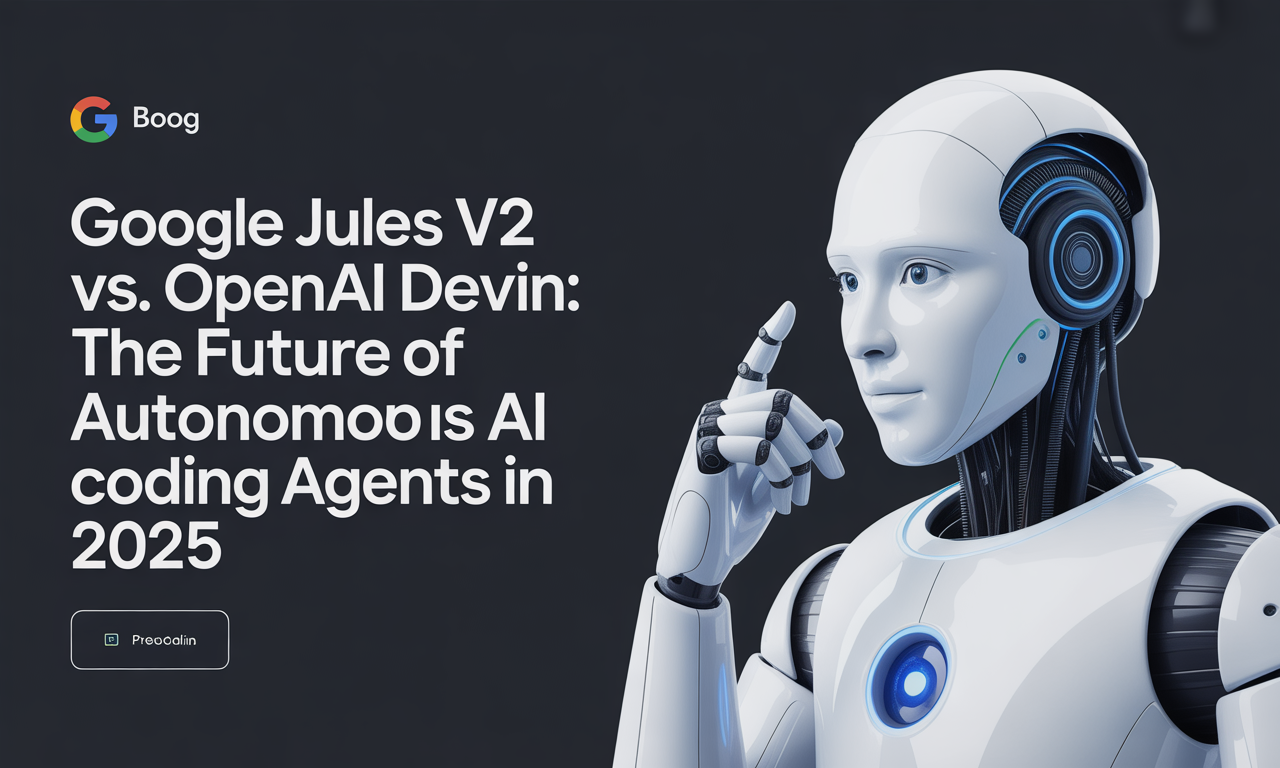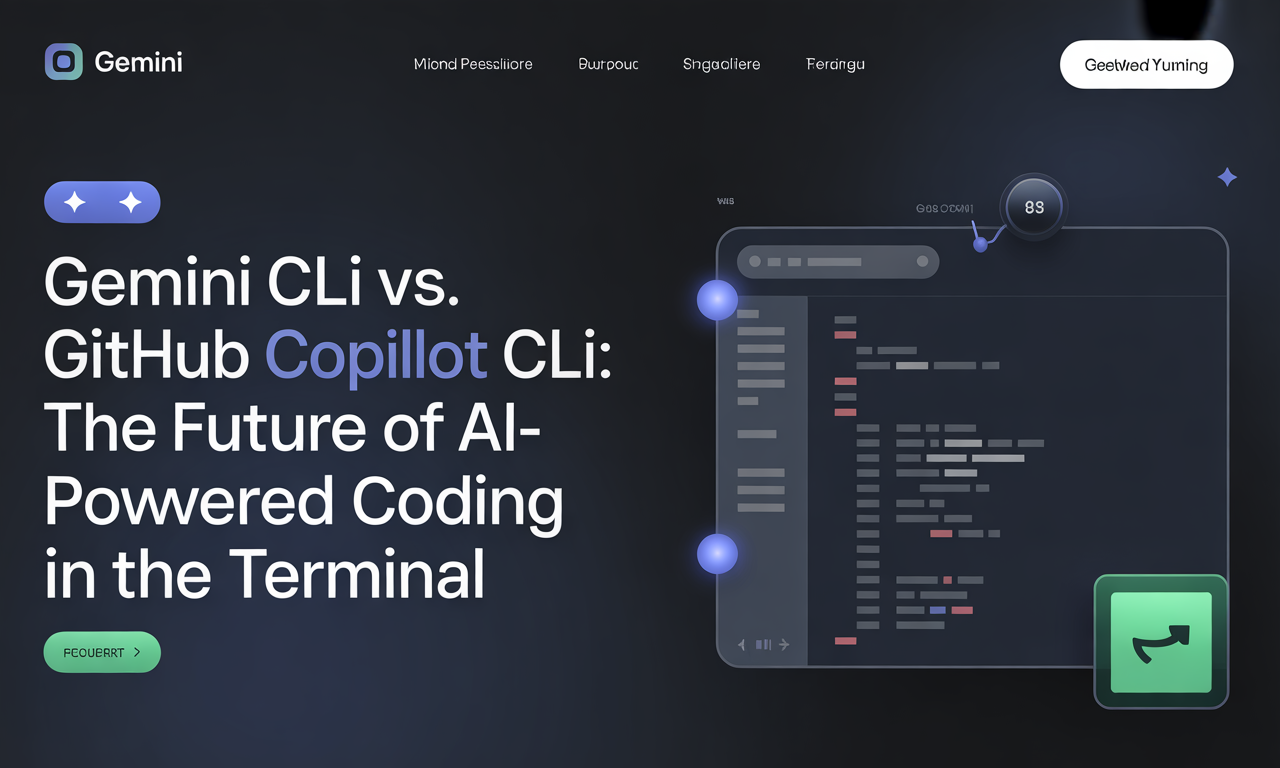How Dyad Empowers Local AI Development: Building Full-Stack Apps with GPT-4.1, Gemini 2.5, and Claude 4
In the rapidly evolving landscape of artificial intelligence, developers are constantly searching for tools that offer flexibility, privacy, and seamless integration. Enter Dyad, a free, open-source AI app builder designed to revolutionize how full-stack applications are created. By enabling local development with state-of-the-art AI models—such as GPT-4.1 from OpenAI, Gemini 2.5 by Google, and Claude 4 from Anthropic—Dyad eliminates vendor lock-in and cloud dependencies, empowering developers to innovate with unprecedented control and efficiency.
In this post, we'll explore how Dyad is shaping the future of AI development, its core features, and practical insights on leveraging its powerful capabilities to build sophisticated AI-driven applications in 2025.
Why Local AI Development Matters
The rise of cloud-based AI services has democratized access to powerful models, but it also introduced challenges:
- Privacy concerns: Sensitive data must often be sent to external servers.
- Latency: Cloud response times can hamper real-time applications.
- Vendor lock-in: Dependency on a single provider limits flexibility.
- Fragmented workflows: Switching between cloud platforms and local development tools slows productivity.
Dyad addresses these pain points by offering a local-first AI development environment that works seamlessly with multiple top-tier models, empowering developers to build full-stack AI apps without sacrificing privacy or flexibility.
Key Features of Dyad: A Deep Dive
1. Local, Full-Stack AI App Development
Dyad allows developers to build, test, and deploy applications entirely on their own machines. This local-first approach offers several advantages:
- Complete data privacy: Your source code and data never leave your device.
- Reduced latency: Instant feedback with real-time previews accelerates iteration.
- Seamless IDE integration: Use your favorite tools like VS Code or Cursor without disruption.
- Full ownership: Maintain control over your codebase without cloud vendor restrictions.
This means developers can confidently prototype and ship AI apps while ensuring compliance with strict data security policies.
2. Model Flexibility: Harness GPT-4.1, Gemini 2.5, Claude 4 & More
One of Dyad’s standout features is its model-agnostic architecture. It supports major AI models through API key integrations, including:
- GPT-4.1 (OpenAI): Great for natural language understanding and generation.
- Gemini 2.5 (Google): Excels at large-scale data processing and rapid prototyping.
- Claude 4 (Anthropic): Ideal for nuanced reasoning, storytelling, and strategic analysis.
Additionally, Dyad supports running local models via tools like Ollama, maximizing privacy and control.
Why this matters:
- No vendor lock-in means developers can switch or combine models based on task requirements.
- Multi-model orchestration enables leveraging each AI's unique strengths within the same app.
- Access to free tiers and local models lowers barriers to entry.
3. Full-Stack Capabilities with Supabase Integration
Building AI-powered applications requires more than just front-end interfaces. Dyad integrates seamlessly with Supabase, an open-source backend-as-a-service platform, offering:
- Authentication: Secure user sign-in and management.
- Database: Robust, real-time databases for storing app data.
- Server Functions: Backend logic to power complex workflows.
This integration empowers developers to build data-driven MVPs and full-stack applications within a single unified environment—no need to juggle multiple tools or services.
4. Open Source and No Vendor Lock-In
Dyad is distributed under the Apache 2.0 license, ensuring it’s free to use, modify, and extend. The benefits include:
- Transparency: Full access to source code fosters trust and community collaboration.
- Customizability: Tailor Dyad to your project’s unique needs.
- Ecosystem growth: Contribute to an evolving platform aligned with developer priorities.
This open-source ethos is critical for sustainable AI development and avoiding dependencies that can limit innovation.
5. Fast, Fluid User Experience
By running locally, Dyad delivers:
- Instant feedback: Real-time previews and instant updates.
- Undo functionality: Make and revert changes effortlessly.
- Smooth workflow: Minimize friction to accelerate development cycles.
These UI/UX optimizations are essential for maintaining developer momentum and creativity.
6. Advanced AI Orchestration for Complex Applications
Dyad supports orchestrating multiple AI models within the same project, allowing developers to:
- Use Gemini 2.5 for heavy data crunching and prototyping.
- Leverage Claude 4 for strategic decision-making and storytelling.
- Integrate GPT-4.1 for versatile language tasks.
This multi-model orchestration unlocks new possibilities for building sophisticated AI solutions that capitalize on each model’s unique capabilities.
7. Integration with Modern DevOps and Scientific Computing
Built on the Julia programming language, Dyad taps into the powerful SciML ecosystem, which facilitates:
- Differentiable programming.
- Neural networks and hardware acceleration with GPUs.
- Integration with Git for version control and reproducibility.
- Embedding into CI/CD pipelines for robust DevOps workflows.
This ensures Dyad fits naturally into scientific computing environments and modern software development pipelines, supporting scalable and maintainable AI apps.
8. Privacy and Local Model Support
For developers and enterprises with powerful local hardware, Dyad enables:
- Running AI models entirely offline.
- Ensuring compliance with data privacy regulations.
- Avoiding exposure of sensitive information to external servers.
This makes Dyad especially attractive for industries like healthcare, finance, and defense, where confidentiality is paramount.
How Dyad Empowers Developers: Practical Benefits
By integrating these features, Dyad empowers local AI development in several impactful ways:
- Avoid cloud dependency: Reduce costs and privacy risks by keeping development local.
- Unified workflow: Build, test, and deploy AI-powered applications in one environment.
- Rapid prototyping: Instant local feedback boosts iteration speed.
- Multi-model synergy: Combine GPT-4.1, Gemini 2.5, and Claude 4 to maximize app performance.
- Seamless tool integration: Use your favorite IDEs and DevOps pipelines without friction.
Together, these benefits enable developers to innovate faster, safeguard sensitive data, and maintain full control over their projects.
Getting Started with Dyad: A Quick Workflow
Here’s a simple step-by-step guide to begin building AI apps with Dyad:
-
Install Dyad locally
Download and install via one-click installers available for Mac and Windows. -
Connect AI models
Use your API keys to integrate GPT-4.1, Gemini 2.5, Claude 4, or set up local models with Ollama. -
Configure backend with Supabase
Set up authentication, databases, and server functions directly within Dyad. -
Develop your app
Use your preferred IDE (e.g., VS Code) to build and preview your app in real time. -
Deploy locally or integrate CI/CD
Run your app locally or incorporate it into continuous integration and delivery pipelines for production.
Actionable Tips for Maximizing Dyad
- Leverage multi-model orchestration: Assign tasks to the AI model best suited for them to optimize performance.
- Integrate Git early: Track changes and dependencies to maintain reproducibility.
- Use Supabase to handle complex backend needs: Don’t limit your app to front-end AI features—build full-stack solutions.
- Experiment with local models: For highly sensitive projects, try running models offline to maximize privacy.
- Contribute to the open-source community: Extend Dyad’s capabilities or share feedback to help grow the platform.
Conclusion: Why Dyad is a Game-Changer for AI Developers in 2025
Dyad represents a bold new direction in AI app development—combining local-first workflows, model flexibility, and full-stack integration in an open-source package. By enabling developers to build sophisticated AI applications using GPT-4.1, Gemini 2.5, Claude 4, and more without cloud lock-in, Dyad provides unparalleled control, privacy, and productivity.
If you’re a developer looking to harness cutting-edge AI models while maintaining data sovereignty and workflow fluidity, Dyad is a tool you can’t afford to overlook. Start building with Dyad today to experience the future of AI development—where privacy, flexibility, and innovation converge seamlessly, right on your local machine.



